Congratulation to Laura Bedoya in graduating and pursuing her education! Read her article today The Political Empowerment of Women in Colombia: Towards Gender Equality.
The Political Empowerment of Women in Colombia
May 18, 2022
May 18, 2022
Congratulation to Laura Bedoya in graduating and pursuing her education! Read her article today The Political Empowerment of Women in Colombia: Towards Gender Equality.
May 9, 2022
Contributed by Katerina Gonzalez Seligmann
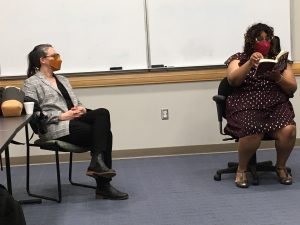
On Friday, April 22nd, El Instituto had the pleasure of hosting award-winning fiction writer and author of the short story collection Love War Stories, Ivelisse Rodriguez. Rodriguez is from Puerto Rico and grew up in nearby Holyoke, MA. She visited my LLAS/SPAN 1009 “Introduction to Latino Literature, Culture, and Society” class to answer our questions about her short stories that we read for class. Rodriguez also met with my students from the fall 2021 LLAS 3230 /WGSS 3258 “Latina Narrative” course where we also read the Love War Stories collection for coffee at the Benton Museum café, and she discussed her research for her historical novel in progress with Prof. Guillermo Irizarry and me over lunch. The visit culminated with a reading co-sponsored with the UConn Humanities Institute, the Literatures, Cultures, and Languages Department, the Africana Studies Institute, and the Women, Gender, and Sexuality Studies Program.
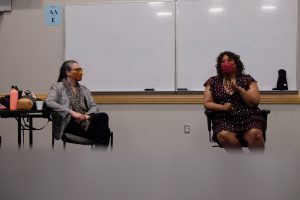
The reading was attended by undergraduate students, graduate students, faculty, and staff. She read from one of the highlight stories of the collection, “Holyoke, MA: An Ethnography,” a story that responds critically to an ethnographic photography project of the Puerto Rican community of Holyoke by taking a close look at the life of a popular high schooler named Veronica alongside a history of the city in which she resides. After the reading, we were all so eager to talk to Ivelisse Rodriguez about her work that we kept talking with her for informally for over an hour. Many members of our community were inspired by the opportunity to hear from her, to connect with her, and to hear her read her work. It was a very special day for El Instituto and for UConn.
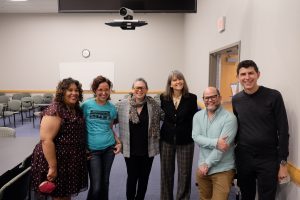
Contributed by Anne Gebelein
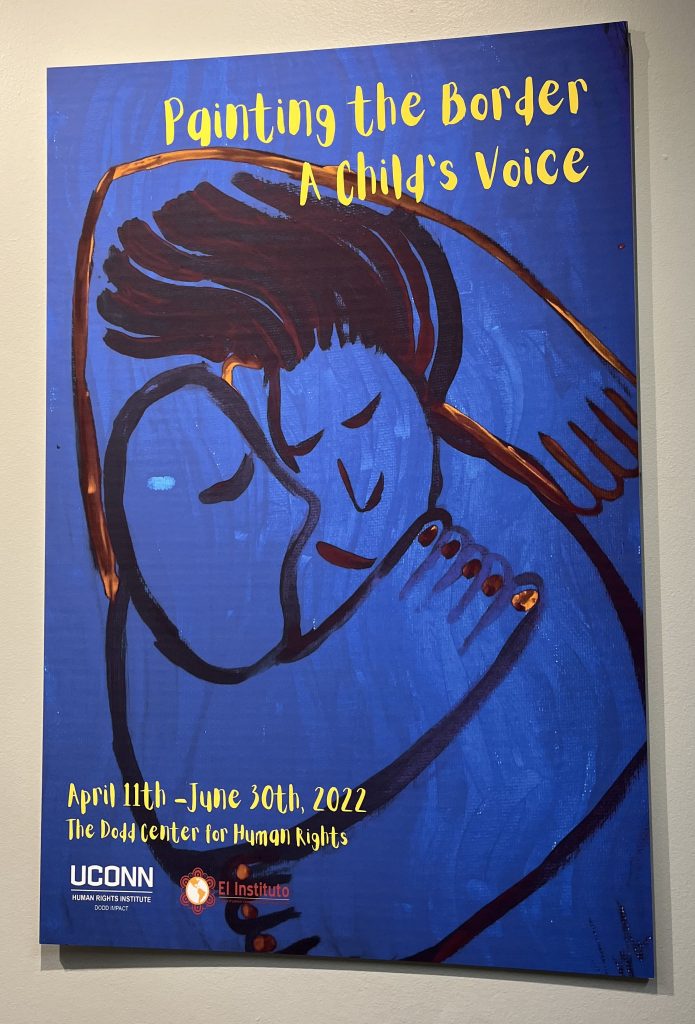
On Monday April 11th, Dodd Impact, El Instituto, and the Human Rights Institute, in collaboration with Skidmore College, celebrated the opening of an exhibit on children’s art created in the MPP camp of Ciudad Juarez, Mexico. The exhibit “Painting the Border” will be in the Dodd Center until the end of June.
To mark the opening of the exhibit, a panel of faculty and activists discussed the current situation of children in refugee camps created by the United States’ “Remain in Mexico” policy, as well as pressing concerns of youth who have arrived in CT. The panel “Youth Seeking Refuge: U.S. Immigration Policy, Mobility Justice and Human Rights” included speakers Dr Diana Barnes of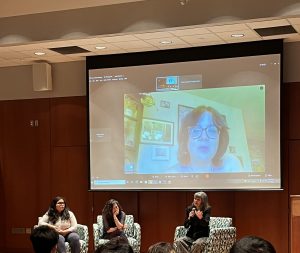 Skidmore College, who created the exhibit; Dr Anne Gebelein of El Instituto; Katia Daley, Healthcare Campaign Organizer for CT Students for a Dream; and Lucero Claudia De Alva Fernandez, industrial engineer, business owner, and the lead creator and organizer of a 9-shelter school system for 484 migrant youth in Ciudad Juarez.
Skidmore College, who created the exhibit; Dr Anne Gebelein of El Instituto; Katia Daley, Healthcare Campaign Organizer for CT Students for a Dream; and Lucero Claudia De Alva Fernandez, industrial engineer, business owner, and the lead creator and organizer of a 9-shelter school system for 484 migrant youth in Ciudad Juarez.
Panelists discussed the many consequences of the closing of the border under Title 42, from foreign nationals not being allowed to exercise their right to request asylum; to a buildup of people seeking entry since 2019; to gangs making fortunes from charging tolls to cross their territory, from kidnapping and extortion, and from human trafficking and slavery. Citizens in Ciudad Juarez worked hard to convert 24 unoccupied buildings into shelters to bring families off the streets in one of the most dangerous cities in the hemisphere, and to create a school system in which to give primarily Central American children some sense of normalcy. Even so, the pictures these children painted in an art workshop reveal anxiety about leaving their homes and traumas in confronting additional violence in their journeys to our border.
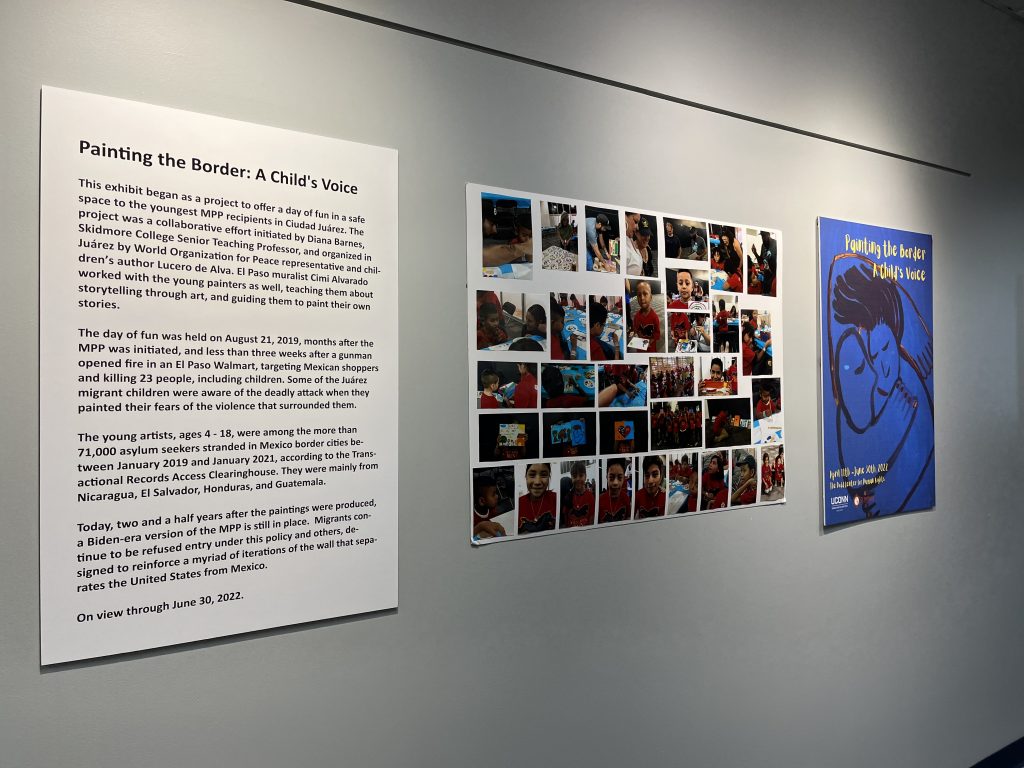 |
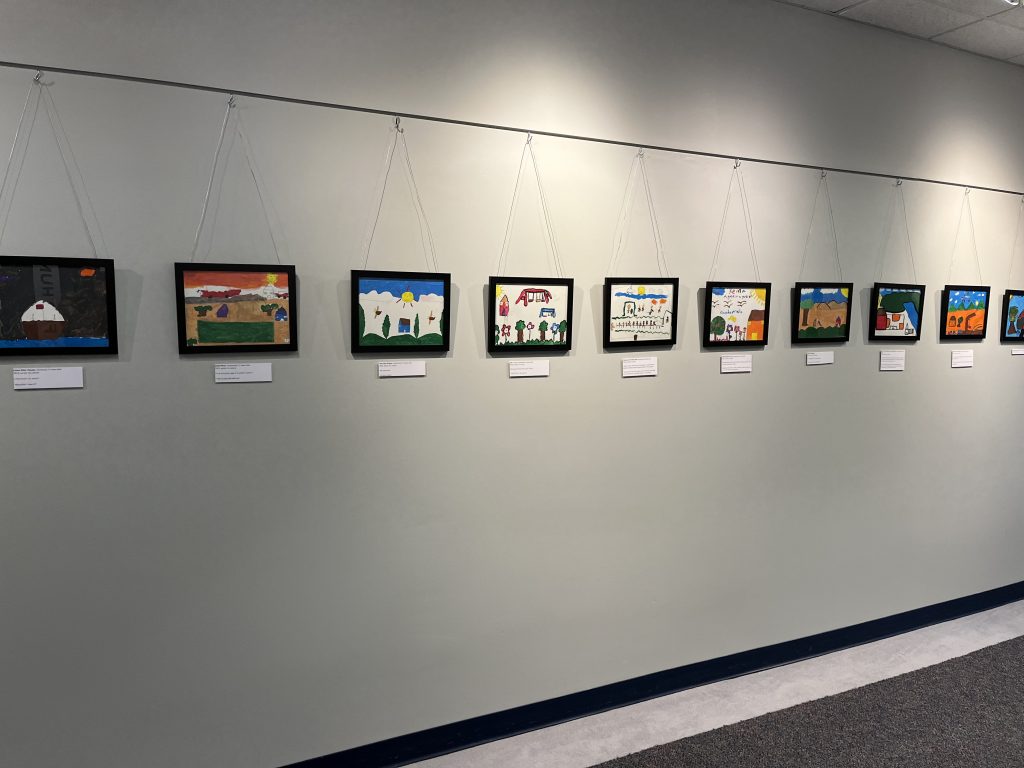 |
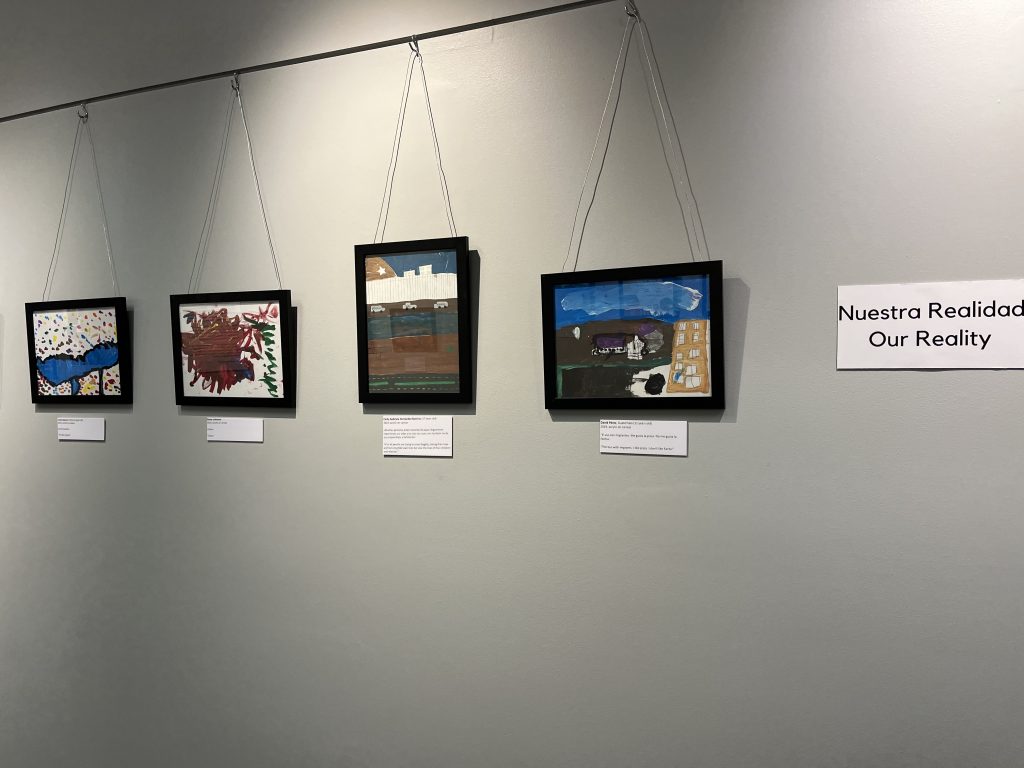 |
Contributed by Anne Gebelein
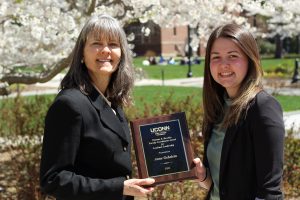 On April 28th, Anne Gebelein was awarded the Thomas E. Recchio Faculty Coordinator Award for Academic Leadership for her work as the Latin American Studies Faculty Coordinator for the Early College Experience. Anne has been working with high school teachers across the state since 2010 to develop and integrate Latin American Studies content into existing courses, and to teach LLAS 1190: Introduction to Latin America and the Caribbean. As LLAS 1190 is an interdisciplinary course, Anne works with both Spanish and History teachers to design a version of the course that works best for their department’s learning goals. She designs and leads yearly ECE workshops in topics of interest to teachers, including Central American migration, mass deportation, Puerto Rican and Latino activism, and changing immigration policy and human rights at the border. In addition, Anne regularly gives lectures in high schools to model college teaching of Latin American topics; has led workshops for students on college writing; and has recently led workshops for teachers in the teaching of border studies.
On April 28th, Anne Gebelein was awarded the Thomas E. Recchio Faculty Coordinator Award for Academic Leadership for her work as the Latin American Studies Faculty Coordinator for the Early College Experience. Anne has been working with high school teachers across the state since 2010 to develop and integrate Latin American Studies content into existing courses, and to teach LLAS 1190: Introduction to Latin America and the Caribbean. As LLAS 1190 is an interdisciplinary course, Anne works with both Spanish and History teachers to design a version of the course that works best for their department’s learning goals. She designs and leads yearly ECE workshops in topics of interest to teachers, including Central American migration, mass deportation, Puerto Rican and Latino activism, and changing immigration policy and human rights at the border. In addition, Anne regularly gives lectures in high schools to model college teaching of Latin American topics; has led workshops for students on college writing; and has recently led workshops for teachers in the teaching of border studies.
Contributed by Samuel Martinez
With sadness but all best wishes for their next life chapters, El Instituto bids farewell to two outstanding UCONN Latinx faculty:
 Linda Halgunseth (Associate Professor HDFS/El Instituto) leaves UCONN for Michigan State University in the fall 2022, after two years on our core faculty. In her short time with El Instituto, Halgunseth not only developed a new advanced undergraduate course on The Latinx Family, but took on important upper-level administrative responsibilities as Director of Academic Affairs at UConn Hartford, while also maintaining an active program of research, publication, and conference presentations.
Linda Halgunseth (Associate Professor HDFS/El Instituto) leaves UCONN for Michigan State University in the fall 2022, after two years on our core faculty. In her short time with El Instituto, Halgunseth not only developed a new advanced undergraduate course on The Latinx Family, but took on important upper-level administrative responsibilities as Director of Academic Affairs at UConn Hartford, while also maintaining an active program of research, publication, and conference presentations.
Jesús Ramos-Kittrell (Assistant Professor in Residence, Music) will begin a tenure-eligible assistant professorship at the University of Oregon in fall 2022, after five years at UCONN.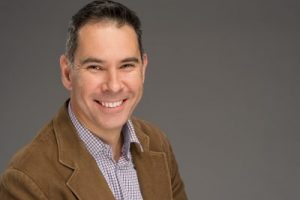 An affiliate faculty member, frequently involved with El Instituto as an event organizer and attendee, Ramos published the contributory volume, Decentering the Nation: Music, Mexicanidad, and Globalization, during his time on the UCONN faculty, as well as winning the 2021 AAUP Teaching Innovation Award.
An affiliate faculty member, frequently involved with El Instituto as an event organizer and attendee, Ramos published the contributory volume, Decentering the Nation: Music, Mexicanidad, and Globalization, during his time on the UCONN faculty, as well as winning the 2021 AAUP Teaching Innovation Award.
Linda and Jesús, we will miss you!
March 22, 2022
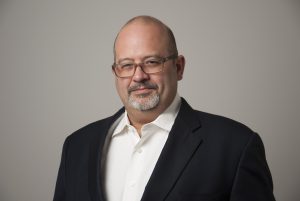
Professor Venator joins 17 other leading scholars of the Latino experience on the inaugural Scholarly Advising Committee of the National Museum of the American Latino . Further news here.
March 9, 2022
The Ballard exhibit highlights depth of Puerto Rican Puppetry, you can read more through UConn Today.
February 3, 2022
Contributed by Fany Hannon & Jennifer Morenus
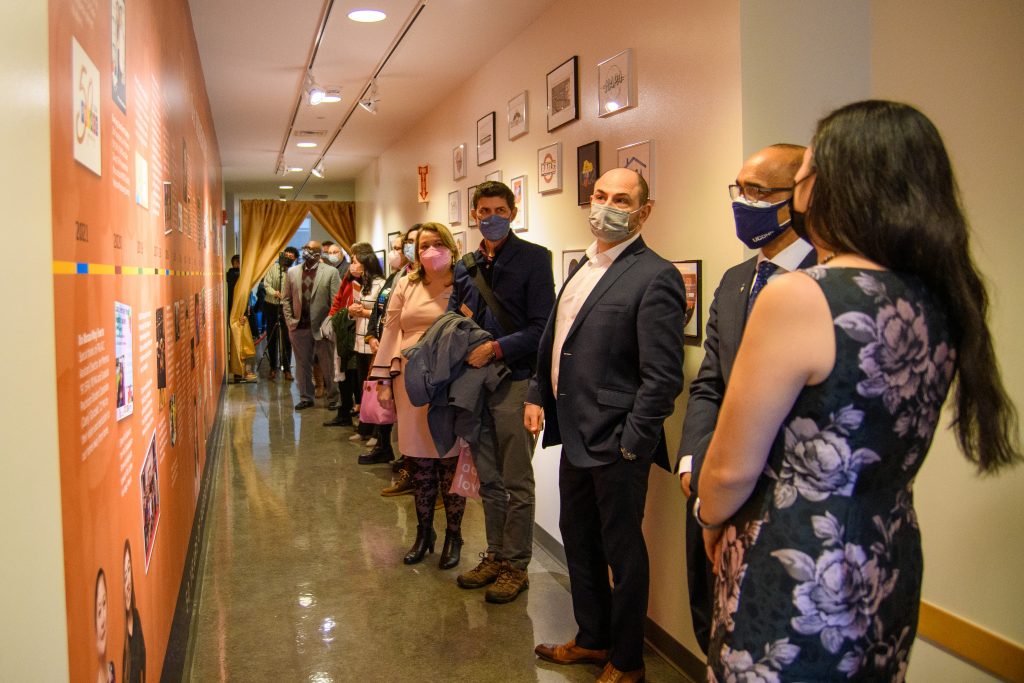
The Puerto Rican / Latin American Cultural Center (PRLACC) kicked off its 50th anniversary celebration on Dec. 10 by unveiling a mural with photos and artifacts on a wall leading to PRLACC’s location on the fourth floor of the Student Union.
PRLACC grew out of the rise of the United States civil rights movement in the late 1960s, when three students drafted and submitted a constitution to form a student organization, the Puerto Rican Student Movement. The students — Carmen Castro ’73 (CLAS), Ana Isabel Lopez ’75 (CLAS), and Isnoel (Ino) Rios ’71 (CLAS) — intended to celebrate Puerto Rican history, culture, and literature and to recruit students to UConn. After months of protests and sit-ins at the president’s office, La Casa Borinqueña opened its doors to UConn community on Dec. 10, 1971.
“I wanted to showcase our history through a timeline to inspire our student by invoking their sense of pride in their heritage and culture,” says Jen Morenus, Assistant Director of PRLACC who led the mural project. “We discovered stories of triumphs and finding solutions when faced with challenges and barriers. What has been a recurring theme of our story is how we have remained resilient and stayed focused on our core mission.”
The project began in June of 2021 with research conducted by Cassandra (Casey) Gonzalez ’22 MA, searched through the University archives to gather photos and stories.
“I would spend hours reading the stories of past students about their time here at UConn,” says Casey. “Each time I would find a ‘gem’ I would run back to Jen and Fany’s office so excitedly that I found more to put on the mural. After months of running back and forth from the Dodd center and various meetings about what should be included in the mural, and many revisions by John (Bailey) our designer, we brought PRLACC’s mural to life.”
“As the daughter of two Mexican immigrants, this project was very personal and close to my heart. My roots run deep through the Latinx experience at a predominately white institution. It was heartwarming and bittersweet to view the experiences of other Latinx/Hispanic individuals at this University from many decades ago through their eyes, voices, and stories.”
Upcoming events as part of the 50th anniversary celebration:
Please follow us on the Instagram @uconnprlacc for most up to date information.
February 2, 2022
UConn alum Oxana Sidorova and Neag faculty member Rebecca Campbell-Montalvo published a paper, in the American Education Research Association’s Open Forum journal, based on their research on health access assistance provided by school employees to Mexican and indigenous Guatemalan families.
|
|
|
Contributed by Katerina Gonzalez Seligmann
In the Fall of 2021, Katerina Seligmann’s first book Writing the Caribbean in Magazine Time was published in the Critical Caribbean Studies Series at Rutgers University Press. To provide an overview of the book, Katerina draws on excerpts from the book’s introduction:
Writing the Caribbean in Magazine Time examines literary magazines generated during the 1940s that catapulted Caribbean literature into greater international circulation and contributed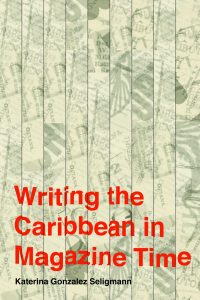 significantly to social, political, and aesthetic frameworks for decolonization, including Pan-Caribbean discourse. This book demonstrates the material, political, and aesthetic dimensions of Pan-Caribbean literary discourse in magazine texts by Suzanne and Aimé Césaire, Nicolás Guillén, José Lezama Lima, Alejo Carpentier, George Lamming, Derek Walcott and their contemporaries. Although local infrastructure for book production in the insular Caribbean was minimal throughout the twentieth century, books, largely produced abroad, have remained primary objects of inquiry for Caribbean intellectuals. The critical focus on books has obscured the canonical centrality of literary magazines to Caribbean literature, politics, and social theory. Up against the imperial Goliath of the global book industry, Caribbean literary magazines have waged a guerrilla pursuit for the terms of Caribbean representation.
significantly to social, political, and aesthetic frameworks for decolonization, including Pan-Caribbean discourse. This book demonstrates the material, political, and aesthetic dimensions of Pan-Caribbean literary discourse in magazine texts by Suzanne and Aimé Césaire, Nicolás Guillén, José Lezama Lima, Alejo Carpentier, George Lamming, Derek Walcott and their contemporaries. Although local infrastructure for book production in the insular Caribbean was minimal throughout the twentieth century, books, largely produced abroad, have remained primary objects of inquiry for Caribbean intellectuals. The critical focus on books has obscured the canonical centrality of literary magazines to Caribbean literature, politics, and social theory. Up against the imperial Goliath of the global book industry, Caribbean literary magazines have waged a guerrilla pursuit for the terms of Caribbean representation.
This book tells the story of the Caribbean archipelago as a particular kind of choice for literary and political representation. In particular, this book excavates what choosing to write the Caribbean archipelago—or not—meant to the literary, social, and political transformations incubated by literary magazines during the 1940s. I examine the potent power of representing Caribbean locations in and around magazines, highlighting location strategies that increased the archipelago’s visibility and fomented regional unity in geopolitical and literary world systems. I interrogate how magazine editors, creative writers, and literary critics have deployed (and resisted) the Caribbean as a locus of enunciation for their work in Spanish, French, English, and creolized linguistic forms. In the literary, political, and cartographic archives probed by this book, the Caribbean—named as such or as las Antillas, les Antilles, or the West Indies—tends to evoke the archipelago as a decolonial horizon. The Caribbean as a region repeats itself as a creatively constructed location with purpose: to articulate a colonial record in common of racial and gendered violence that persists into the present, to imagine an anti-imperial (and in some cases anticapitalist) regional and planetary solidarity, and / or to offer political, social, and aesthetic alternatives to the hierarchies buttressed by imperial infrastructures.
During World War II literature produced abroad would circulate even less than usual in the Caribbean, and perhaps due to the resulting demand for reading material, literary magazines featuring many of the writers who would go on to become spotlights of Caribbean literature proliferated. Amid paper shortages brought on by the war and the disparaging of homegrown literature over foreign imports prevailing among middle-class reading audiences throughout the region, literary magazines contributed to uplifting locally and regionally produced literature, fomenting cultural capital for Caribbean literature and bolstering political transformations. As I argue throughout this book, literary magazines produced during the 1940s assembled and advanced the debates that structure many of the Caribbean’s political, social, and aesthetic trajectories until the present. This book thus highlights the centrality of the magazine form to the history of literature and politics in the region and examines the aesthetic and political strategies authors, editors, critics, and publishers used to imaginatively construct and circulate the Caribbean as a literary and geopolitical location.
The chapters of the book break down as follows: